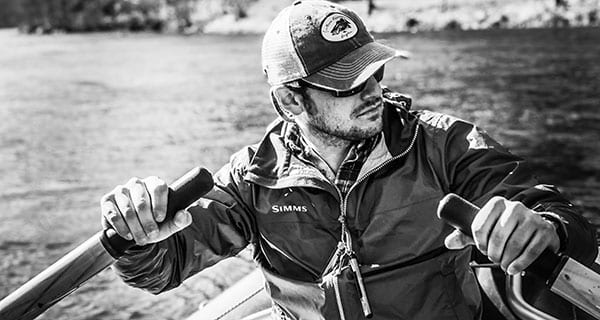Personal responsibility and fishing are two words that aren’t often mentioned together within the same sentence, but I think that now, more than ever, it is necessary to try and draw a connection between these two subjects as it relates to the future of our sport and our environment as a whole. We stand at a crossroads in our society that also trickles down into the angling culture; which path we decide to take individually will have lasting effects not only on our fisheries but also within our own personal lives as well.
Fishing in general, regardless of what species is targeted, has gotten insurmountably easier in terms of finding information. This information can come in the form of finding specific locations, how-to videos on techniques, and the affordability and availability of equipment is drastically different compared to only ten years ago. New generations of anglers now have access to almost every facet of knowledge, much more than I ever had when I was growing up. While this notion of available information isn’t inherently a negative connotation; what it does mean is that new anglers are learning in ways that are completely different from previous generations of fishermen.
Now, how does this all relate to having a sense of personal responsibility? The connection for me is steeped deeply in the environment in which I was raised. I grew up watching members of my family, particularly my grandparents, who had a strong sense of work ethic in almost every aspect of their lives. It wasn’t just that they worked hard for the sake of being able to provide for their families, but also because it gave them a sense of meaning in the work that they did. They took pride in every single thing they built, created, or said, because to them it mattered immensely. I was raised with that attitude of caring and appreciating what I was working at, which ultimately translated into how I learned to fish. I believe that when you look at some of the best anglers in the world: Lefty Kreh, Joe Humphreys, and others, that this same work ethic is also evident. It wasn’t just that they were really good at catching fish, but they also understood how and why they caught fish in the first place through what I would ultimately imagine to be a prolonged series of trials and errors, and studying both successes and failures on the water, for years on end.
When information becomes widely available, it is then very easy for people to stagnate in their personal drive to better themselves. Why work hard at finding solutions for problems fishing on your own when that information is only a quick search queue away on your smartphone? To me, this presents a bigger problem within the angling community that I have been pondering on over the last few years. It’s not necessarily that the information is out there, but that it negates the sense of personal responsibility to become better as an angler.
Being a better angler means being willing to care deeply about the sport. This affection for fishing stems from having a very deep connection and understanding about the environments in which fish reside. Once one understands the complexity and interconnectedness of the ecology surrounding aquatic ecosystems, it instills a sense of personal responsibility to better care for those ecosystems because, frankly, we love them and the angling opportunities they provide us. Stocked fish from hatcheries in artificially made fisheries have their place, but when our entire experience is relegated to something that inherently takes very little skill, then we will never grow individually as anglers.
Studying every aspect of fishing takes someone who is dedicated, and I’ll be the first to admit that it’s not entirely possible for every person. However, the culture and mindset of being personally responsible in how we learn as anglers can create a better appreciation and respect for the environments that we fish in. After all, the only way inherent meaning is found through any activity is through consequence. I fervently believe that it is our responsibility, as so-called stewards to the sport, to instill this attitude if we want future generations of anglers to enjoy the same experiences that we enjoy on the water today.
Ethan Hollifield is a member of a conservation organization called 2% For Conservation and a guide for Southern Appalachian Anglers.
